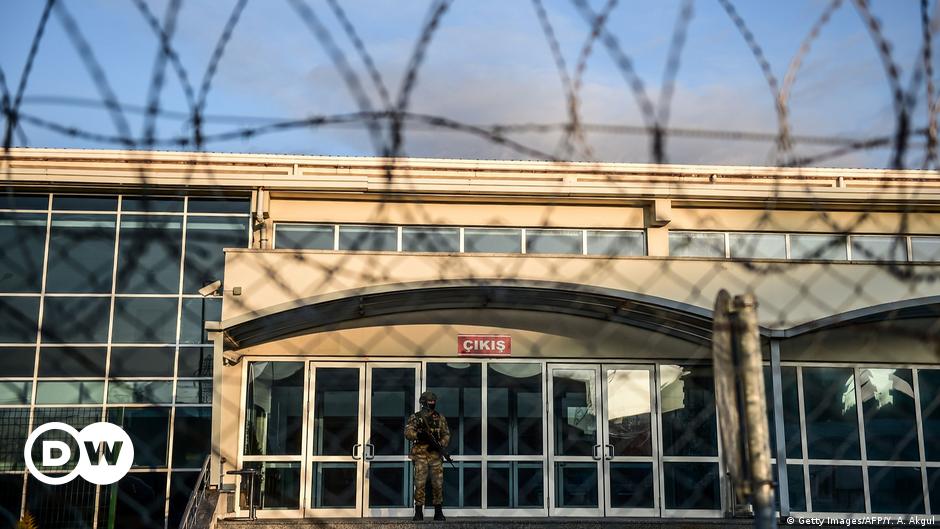The only trace left of him was his car, the doors open,the tires flat. Orhan Inandı, director of a school in Bishkek, Kyrgyzstan, had disappeared in 2020. There were no witnesses.
An investigation team was set up, and circumstantial evidence was evaluated. Even the Kyrgyz president got involved.
Weeks later, it was clear that Inandı was kidnapped. Not by bandits or the mafia — the Turkish secret service MİT arrested and illegally took him out of the country because he was said to have supported political opponents of Turkish president Recep Tayyip Erdogan. Inandı is thus one of the most recent cases of state kidnapping.
From murder to mobbing
In fact, according to the US think tank Freedom House,at least 31 states have broken international law by persecuting citizens abroad since 2014. In addition to illegal kidnappings, persecuting states often rely on the country’s cooperation in which opposition figures reside, urging them to be deported.
Assassinations and non-lethal attacks as well as intimidation are also on the list. Furthermore, some people disappear forever without a trace. “Regimes can reach exiles more easily than ever before,” says Freedom House expert Isabel Linzer, “including in the form of spy programs, through surveillance and intimidation on social media.”
Kidnappings and arrests were among the most common state crimes abroad.
According to Freedom House,a total of 607 murders, kidnappings and other attacks have been documented since 2014. The report, however, does not include cyber espionage and online harassment. “But even that is an incomplete snapshot of a much larger problem,” says Linzer, who compiled the data, “and it’s definitely getting worse.”
Andreas Schüller of the European Center for Constitutional and Human Rights agrees: “International law is less and less respected and enforced, especially by authoritarian states.”
As reported by Freedom House, China, Turkey and Egypt attack nationals on foreign territory most frequently. Nevertheless, it is not just a practice of these states, says Schüller from ECCHR: “The US has also made use of it in in its War on Terror and has not properly addressed and sanctioned it to date.” These include, for example, the CIA’s kidnapping and torture of German Khaled al-Masri and its plans to assassinate Julian Assange, as YahooNews reported first.
Such actions are not only morally reprehensible but also illegal, Schüller explains. However, sitting heads of state also enjoy immunity before the courts of other states, but not, for example, heads of secret services who order kidnappings or murders.
Often, rising numbers of attacks are related to major political events, after which governments want to silence or control opposition figures in exile.
China: Hunt for Uyghurs in exile
According to Freedom House, China, the most aggressive persecutor state, could be proven significantly more cases in 2015 than before. The year before, China had started to suppress and assimilate the Turkic ethnic group of the Uyghurs in the province of Xinjiang in the name of the “People’s War on Terror.”
According to Freedom House, since 2014, Turkey has been the state that has kidnapped people abroad the most. The accusation used: terrorism, extremism, and anti-state actions.
Meanwhile, China continues with aggressive policy abroad. In doing so, China often relies on the countries’ cooperation where the victims are located. Countries such as Thailand stage trials without legal proceedings after the arrest,ending with deportation to China. This maintains the appearance of due process of law. China’s regime used abductions without a trial in only ten percent of the cases documented by Freedom House.
Murder and assassinations are rare
However, particularly shocking cases, such as the poison attack on Alexei Navalny or the murder of Jamal Khashoggi, are more prominently discussed in public. Since 2014, however, “only” 26 international murders and 20 assaults have been documented. Russia tops the list with seven deadly assassinations.
Most countries that resort to measures contrary to international law tend to bring their opponents under control through arrests, deportations, and especially kidnappings. The number of such crimes is 12 times higher.
Egypt also prosecutes opposition figures abroad exclusively through nonlethal means, Freedom House reports suggest. Most recently, the number of arrests, kidnappings, and deportations of political activists in exile skyrocketed in 2019. The country on the Nile thus violates the relevant international standards most frequently in the Arab region.
Egypt mainly persecutes political activists abroad and justifies this almost exclusively with terrorism and extremism.
Turkey: Government celebrates breach of international law
Turkey is even more active than Egypt, cracking down on opponents abroad, mainly actual and alleged supporters of the Gulen movement since the coup against Erdogan’s government in 2016.
Like Egypt, Turkey rarely relies on cooperation with countries where victims have been located. Instead, illegal kidnappings are the method of Ankara’s choice, Linzer says. “No other country in the world has carried out such a large number of repatriations from that many different countries in recent years,” she adds.
Often, such actions remain under the radar: “Most people have probably never heard of Turkey ‘bringing back’ people from Kenya, for example.”
China mainly attacks Uyghurs abroad.
Nevertheless, Turkey is not acting secretly. On the contrary: While many countries cover up or deny kidnappings, government representatives boast about illegal seizures with the help of the Turkish secret service MİT and react aggressively to criticism. Experts fear that Turkey’s actions could become a model for other countries. UN investigators already called on Turkey to stop the kidnappings in a public letter.
‘It’s not OK to kidnap people’
“But we’ve also seen some good steps to combat transnational repression,” says Freedom House’s Linzer. Sweden and other Nordic countries, for example, have passed laws against so-called “refugee espionage” that explicitly prohibit collecting information on people who have fled.
In addition, sanctions could be imposed on members of the aggressor state’s government or arms embargoes. Expulsion of diplomats would also be an adequate step. In the end, Linzer says, it’s about raising the cost of such actions and “creating international norms that say, ‘No, it’s not OK to kidnap people.'”
In the case of kidnapped school principal Orhan Inandı, such consequences have so far failed to materialize. Photos from Turkey’s Silivri prison released in November 2021 show Inandi alive with one arm tied in a noose. His wife wrote that her husband did not receive any medical treatment after being tortured in jail, and a bone fracture injury. For months, her husband has not been able to move his arm, Inandı’s wife said.
This piece was edited by Peter Hille and Jakov Leon.
Source: DW



